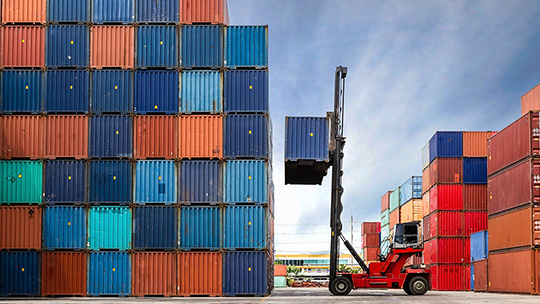China to Speed up Fiscal and Taxation Reform
Dec. 19 – In a report released by the Ministry of Finance on November 21, China’s Finance Minister Xie Xuren stressed the need to speed up fiscal and taxation reform in the country.
In the report, Xie pointed out that the government’s objective is to build a multi-layered taxation system based on circular tax and income tax, as well as property tax, environmental resources tax, and taxes in other specific areas.
Xie also confirmed the government’s intention to extend the current value-added tax pilot scheme nationwide, and efforts will be made to upgrade local taxation systems and streamline distribution relations between governments at different levels. Currently, China’s value-added tax pilot scheme has only been enacted in the following regions:
- Shanghai Municipality
- Beijing Municipality
- Tianjin Municipality
- Jiangsu Province
- Anhui Province
- Guangdong Province
- Fujian Province
- Hubei Province
- Zhejiang Province
In November, tax revenues in the country reached RMB676 billion, representing year-on-year growth of 21.1 percent. This sharp increase can largely be attributed to last year’s low benchmark and last year’s economic stabilization and recovery.
Tax revenues from January to November 2012 totaled RMB10.9 trillion, registering year-on-year growth of 11.9 percent; 14.9 percentage points lower than the growth rate over the same period last year. This drop in growth levels can mainly be attributed to a slow economy, low corporate profits and structural tax reduction policies by the government.
Dezan Shira & Associates is a specialist foreign direct investment practice, providing corporate establishment, business advisory, tax advisory and compliance, accounting, payroll, due diligence and financial review services to multinationals investing in emerging Asia.
For further details or to contact the firm, please email china@dezshira.com, visit www.dezshira.com, or download the company brochure.
You can stay up to date with the latest business and investment trends across China by subscribing to The China Advantage, our complimentary update service featuring news, commentary, guides, and multimedia resources.
Related Reading
 Value-Added Tax Reform
Value-Added Tax Reform
VAT reform is a confusing transition for many and introduces a number of additional questions, such as exactly what types of input VAT are now deductible. Confusion about the new laws may also allow opportunistic companies to charge higher prices and blame the increase on the tax reform. To add some clarity to the issue – and VAT in general – this issue of China Briefing takes a look at a number of VAT-related questions.
Jiangsu Province Issues Guidance on General Taxpayer Recognition
VAT Pilot Reform to be Implemented in Beijing and Other Regions from September
Six Key Points Regarding China’s Tax Reforms in 2012
VAT Reform Rates by Service Type
Foreign-Trade Enterprises Can Still Apply for Input VAT Credit Certificates
Ten Cities and Provinces Apply to Participate in VAT Reform Pilot Scheme
Jiangsu Province Releases Opinions on Taxation During Tax Conversion
- Previous Article Letters from America: U.S. Companies Selling to China – The Initial Evaluation Steps
- Next Article Hong Kong and Macau-Based Companies Allowed to Set Up Mainland Medical Institutions


























